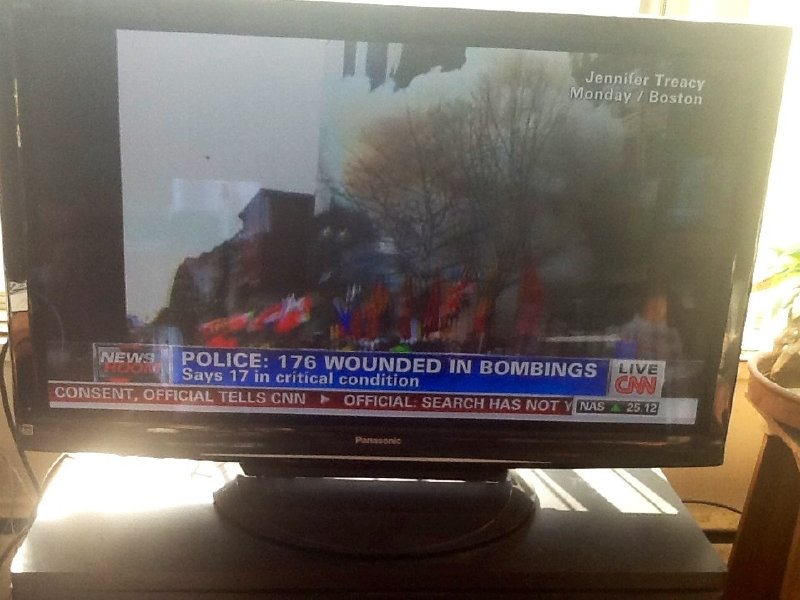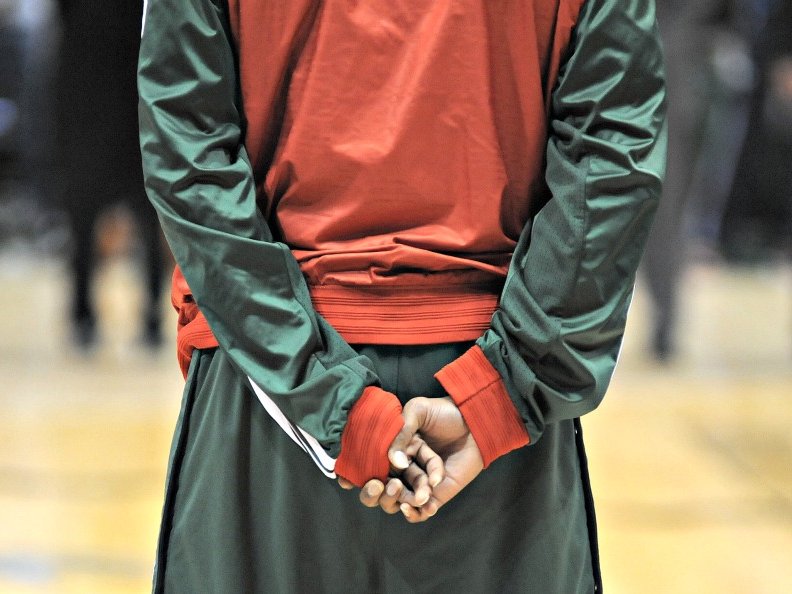What are people in Boston thinking today?
I suspect they're thinking the same thing as New Yorkers on the days following the Sept. 11, 2001 attack on the World Trade Center.
They are realizing their lives will never be the same.
With three dead and 176 people injured at the time of this writing – including at least 10 amputations according to doctors – the bomb explosion at the Boston Marathon wasn't planes flying into a building but it had the same effect.
What used to be a solid sense of security when out in public places has been replaced by a nagging realization nothing can really be done to prevent some of these reckless attacks. That means we are truly between a rock and a hard place if we want to continue to enjoy the right to congregate in public spaces without fear.
I know what some in Boston are feeling today; I was in New York City days after 9/11 on assignment for the daily newspaper, along with other reporters. My most vivid memory was the palpable tension that came with being in any crowded location, particularly when a police siren or ambulance horn started to blare.
Just days after watching the Trade Center towers fall in an unprecedented attack on America, any sign of emergency made everyone flinch.
I asked former Journal Sentinel colleague James Burnett, currently a reporter for the Boston Globe, what folks in his city were feeling the day after one of the most deadly attacks on America since 9/11.
Not unexpectedly, he said things had changed drastically.
"As you might expect, the mood in the city was overwhelmingly somber Monday afternoon, heading into evening," Burnett said in an e-mail message.
"On the subway platforms it seemed people were not just sober-minded, but also apprehensive. I overheard lots of talk about how 'the air' felt like (9/11)."
During his subway ride home, Burnett said many reactions seemed to fall along generational lines.
"An elderly couple across from me sat quietly with looks hovering somewhere between guilty and disbelieving. Three young women in their 20s or 30s sat nearby. The woman in the middle of the group wore runners gear and a marathon number, and a solar blanket was draped over her shoulders. Her companions whispered ruefully to her and rubbed her shoulders and back."
Burnett also observed young men, probably baseball fans, who seemed agitated about the attack and were "mumbling and growling" a lot of frustration..
Burnett said the general tone of things was as would expected after such a horrific public experience. "All pretenses aside? People were scared and people were angry – some both."
Like most Americans, watching coverage of the Boston Marathon bombing Monday brought back uncomfortable memories of the way a terrorist attack that takes lives and mangles limbs does almost equal damage to the sense of safety that most take for granted.
Many citizens have gotten used to the restrictions that came after the September 11 terrorist attack and don't even complain that much anymore. But a heightened concern about the possibility of deadly tactics used in public spaces just adds a new level of anxiety.
Every city has a version of the "Patriots Day" in Boston, a scheduled activity that most residents look forward to with gleeful anticipation. Most years, the Boston Marathon is exactly such a joyful day but it likely won't be for years to come.
Nobody wants to cancel Milwaukee traditions like Al's Run, Summerfest, Brewers opening day or football games at Lambeau Field due to the fear of extremists or merciless villains looking to make an evil statement.
Just like with Sept. 11, 2001, the challenge is not to let these kind of events keep us from continuing to find joy in life. Because if we don't do that, it means the terrorists end up winning.
We can't let that happen.
Eugene Kane is veteran Milwaukee journalist and nationally award winning columnist.
Kane writes about a variety of important issues in Milwaukee and society that impact residents of all backgrounds.







